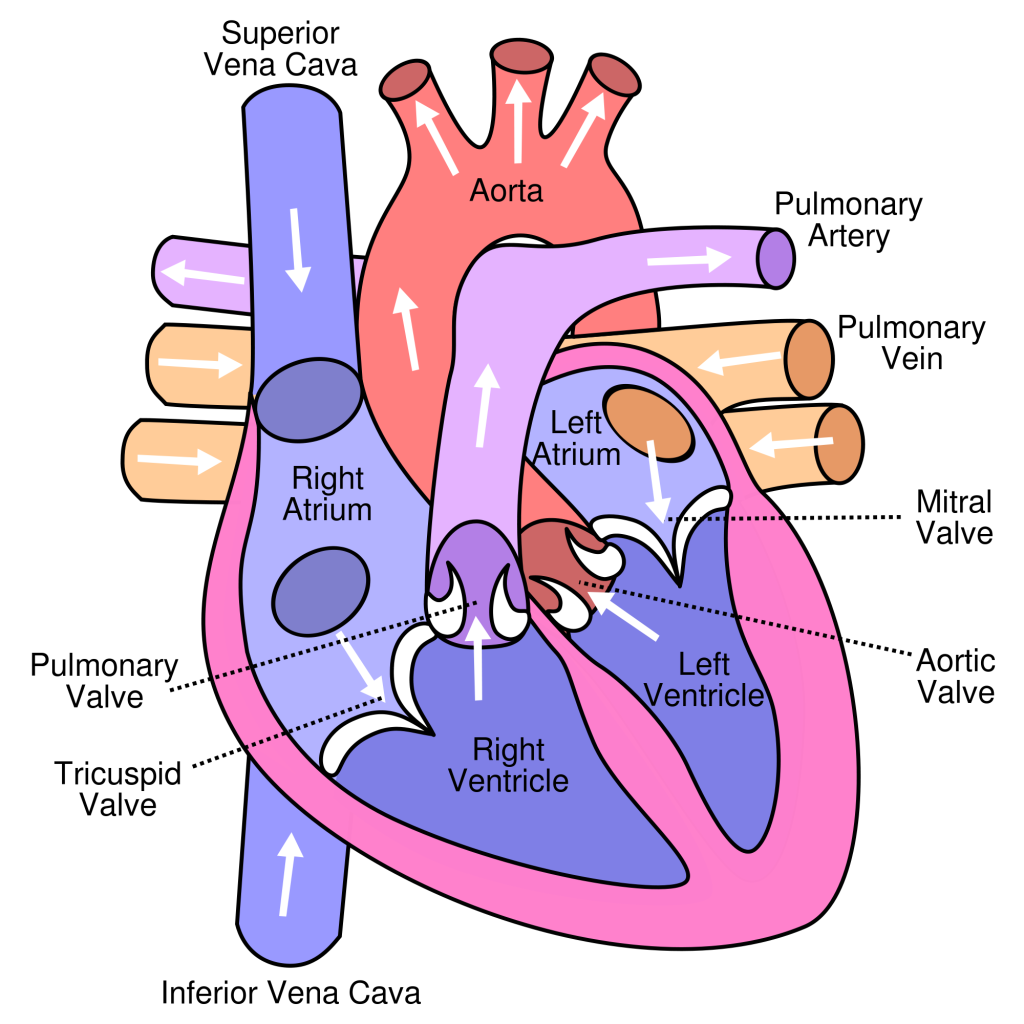2017.01.17 CSCS Daily Study Question:

When an athlete is exercising, the amount of deoxygenated blood returning to the heart from systemic circulation increases. The increased blood volume returning to the heart causes the end diastolic volume of the heart to be greater than it would when the body is at rest. The increased end diastolic volume causes greater stretch of cardiac myocytes and results in a more forceful contraction causing greater cardiac emptying. Which of the following relates to this principle?
(A) Bohr Effect
(B) Frank-Starling Mechanism
(C) General Adaptation Syndrome
(D) Matveyev’s Model
Continue Reading / scroll down for answer…..
Try Another CSCS Question of the Day
Correct Answer:
(B) Frank-Starling Mechanism
Explanation:
The Frank-Starling (pronounced “Frahnk”) mechanism refers to the principle of greater stretch of muscle cells causing a greater force of contraction.
The Bohr Effect refers to oxygen being unloaded by hemoglobin in tissues with higher concentrations of carbon dioxide. Matveyev’s Model refers to periodization training and General Adaptation Syndrome is the model used to describe how the human body reacts to stress (shock/alarm, resistance/adaptation).
Reference:
Essentials of Strength Training & Conditioning 3rd Edition p. 123
These CSCS exam practice questions were created to help users study for the Certified Strength and Conditioning Specialist certification exam from the National Strength and Conditioning Association (NSCA). Using CSCS exam practice questions is an efficient way to study the most relevant material for the Certified Strength and Conditioning Specialist exam. CSCS exam practice questions can help you to remember important concepts and test your knowledge of the material in a no-pressure environment. The Certified Strength and Conditioning Specialist designates that a fitness professional has the scientific and practical knowledge necessary to assist athletes to improve their physical performance.
If you’re like most strength and conditioning specialists, chances are that you like sports and you have a competitive mindset. For people who are competitive, doing practice questions is awesome because 1) they like to win, and 2) the sting of getting a question wrong burns the correct answer into the mind of a competitive person unlike any other learning method.
The Certified Strength and Conditioning Specialist (CSCS) exam by the National Strength and Conditioning Association (NSCA) is a four-hour-long, pencil and paper or computer-based examination. The Certified Strength and Conditioning Specialist exam has two sections: “Scientific Foundations” and “Practical / Applied.” Each of these sections consist of questions that the National Strength and Conditioning Association (NSCA) feels are relevant to test the knowledge and experience of a candidate for the Certified Strength and Conditioning Specialist (CSCS) professional credential. Certified strength conditioning specialist comprehensive questions from the Scientific Foundations section include anatomy, exercise physiology, biomechanics, and nutrition. certified strength conditioning specialist comprehensive questions from the Practical / Applied section include program design, exercise techniques, testing and evaluation, and organization / administration (NSCA, 2015).
2017.01.17 CSCS Daily Study Question